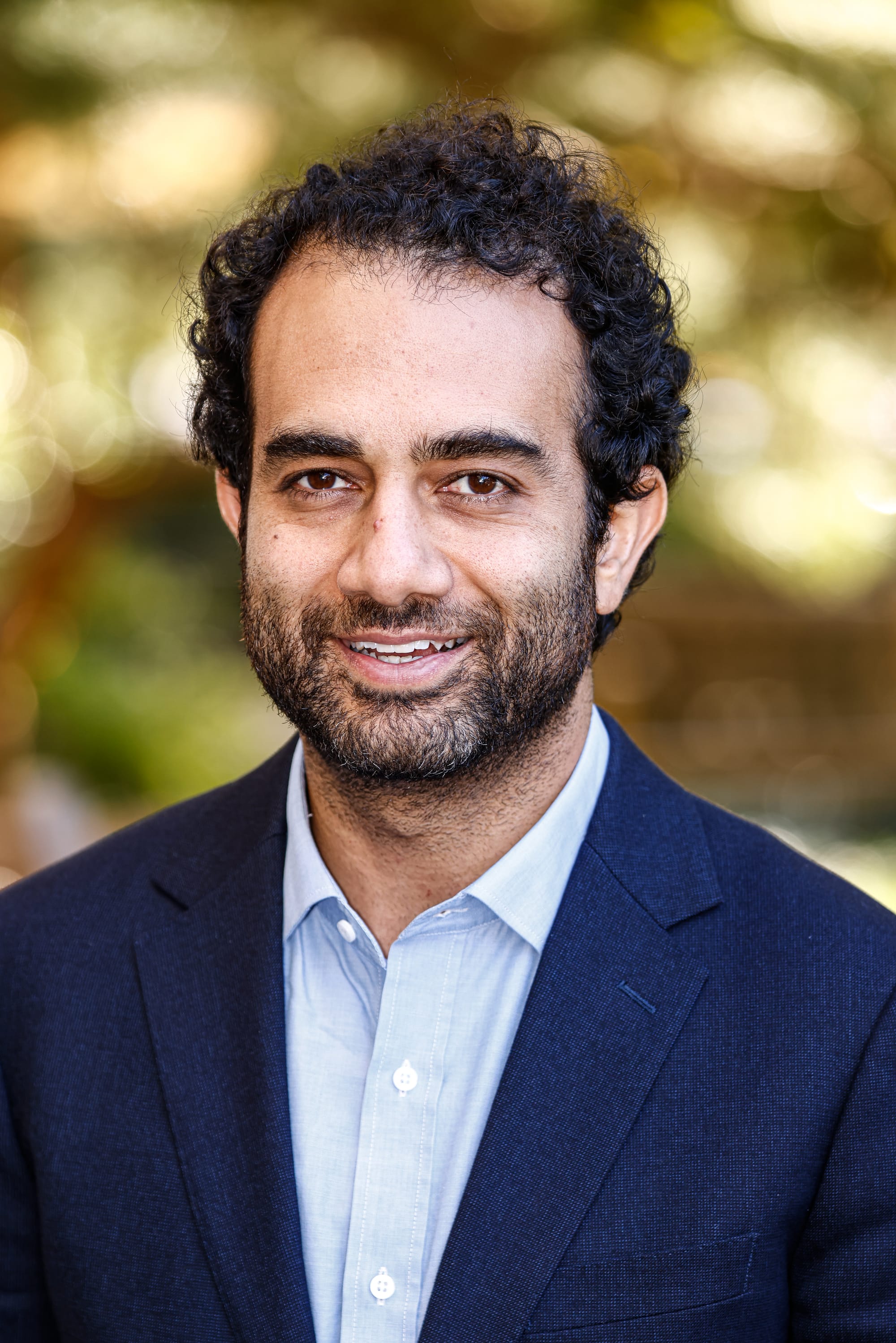Shadi Hamid attempts to make 'The Case for American Power'
Shadi Hamid’s latest book argues that the world needs more U.S. influence.

Are you proud to be American?
That’s a loaded question right now and maybe has always been. In many circles, it feels cringeworthy at best and willfully ignorant of current events at worst. But in “The Case for American Power,” Washington Post columnist Shadi Hamid’s latest book, argues that more American power is exactly what the world needs right now.
“Today, the world needs American power, it needs more of it — and it needs it now,” he writes in the introduction. “But power on its own isn’t enough. The world needs American dominance, too. This means maintaining America’s political, economic, and cultural edge over its competitors.”
And by competitors, he mostly means China.
Let’s take a second here to acknowledge the knee-jerk reaction that elicits. I got it too. Maybe some of you have already stopped reading, but Hamid isn’t a MAGA conservative and doesn’t aim to pander to them. He self-identifies as left-leaning and isn’t an uncritical or enthusiastic booster of American power. In “The Case for American Power,” he argues that American power is the only way forward, not because of the superiority of the people or that we’re producing the best outcomes consistently. In fact, he doesn’t shy away from the bad outcomes that have resulted from American foreign policy choices in the last few decades. Hamid didn’t come to his conclusions easily, he admits in the book.
He admits the case for American dominance gets harder to make by the day. He acknowledges that words like “dominance” or “exceptionalism” can be off-putting to a significant number of people because of the way they’re so often “employed by uncritical cheerleaders of various stripes, whether Donald Trump-supporting America firsters or the neoconservatives who ushered in disaster with their decision to invade Iraq.”

“As I write this,” he continues. “I am reminded daily of my country’s unquestioning support for Israel, including throughout its punishing bombardment of Gaza.”
But he chooses to use these words anyway, arguing that the fact that patriotism has become generally right-wing coded and “uncouth” is part of the problem.
“It’s perfectly reasonable to disagree with these concepts on the merits; it’s less reasonable when they are dismissed out of hand because of the ‘vibes,’” he writes.
So let’s talk about the merits. Hamid believes democracy, particularly American democracy, is reactive and net positive even when it produces results we don’t like. Morality, he writes, “is impossible without power.” The U.S. has power, and the alternative global powers are much worse. Young progressives, he argues, are too cynical about American democracy. They’ve fallen prey to what he calls the opposite of xenophobia: oikophobia, the fear or hatred of home/one’s own society. Despite American decline and our own hypocrisy (as discussed in both chapters of the book), he argues that American power is the result of American choices, which can change and adapt to problems over time.
I am the kind of person Hamid is writing about: a young, upwardly mobile (I mean, I hope), left-leaning college graduate who has traveled and lived abroad. I, too, am a lot more cynical about American power and the democratic project as a whole than I once was.
There are some things that Hamid writes that are undeniable: America has power, and it’s not going away anytime soon. To make a change requires power. Perhaps it’s even net-better for society if young people in America have less self-contempt for the country.
Hamid makes a thoughtful case for democracy in the abstract, comparing it to its alternatives, and even opens the chapter acknowledging that our own founding fathers weren’t actually into the rule of the people that much. It’s easy to fall into his prose and agree with his sentiments. But despite his claims to be like the young progressives he’s critiquing, he falls short in directly addressing the elephant in the room regarding American democracy: the Electoral College system.
Trump, who has won two elections, won both of them with less than 50% of the actual votes cast. A conversation about American democracy and how its leaders use power on a global stage feels incomplete without acknowledging that the disillusionment of young people stems from the kind of democratic system we have. — one where you can win the election for the highest office, not only without a majority of the vote but without even winning the popular vote.

Sure, American choices might direct American power, but if those choices are manipulated and the results don’t reflect the will of the majority of American people, it’s hardly fair to criticize young people for acknowledging that the system is broken. The cynicism about American power isn’t just about our foreign policy. It’s about the U.S. government’s longest shutdown in the country’s history, ICE raids and fundamental things we grew up believing about democracy and fairness being upturned on the regular. How can we say we need to intervene in other countries when we can’t even get the budget passed to pay people who work for the government, including the troops who would presumably be executing these actions?
The case for democracy might be strong, but the case that the world needs more U.S. dominance falls short. Writing an argument in book form means you get to focus the debate in the direction of your choosing. But when people debate the merits of American dominance, it’s not generally a debate about the merits of democracy vs autocracy. By choosing to focus his efforts here rather than on the practicality of what that looks like or addressing arguments about our domestic realities, Hamid misses the opportunity to engage with people who might be receptive to his ideas but have real hangups about them.
Despite its shortcomings, “The Case for American Power” is an interesting and rare, almost middle-ground perspective from a Muslim American child of immigrants, and it makes you think, even if you disagree with the conclusions. Hamid is a political columnist. He’s aware of all the things that are going on in the country right now, and yet, he’s proud to be an American. His book is the first in a long time to ask me to consider being proud, too.
Editor's Note: This article has been updated to correct a typographical error.





